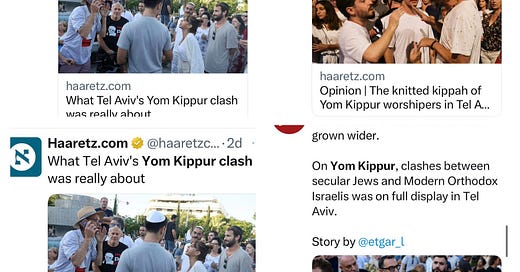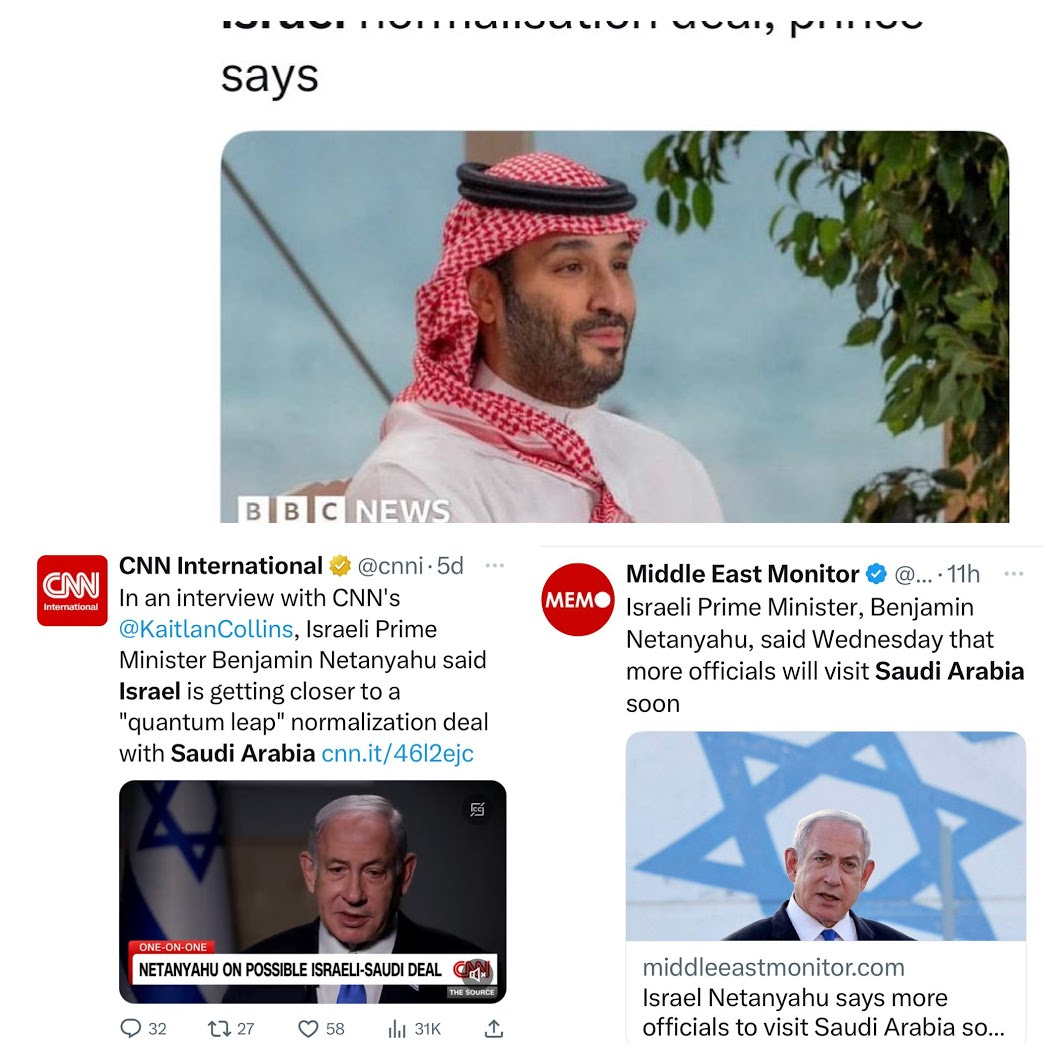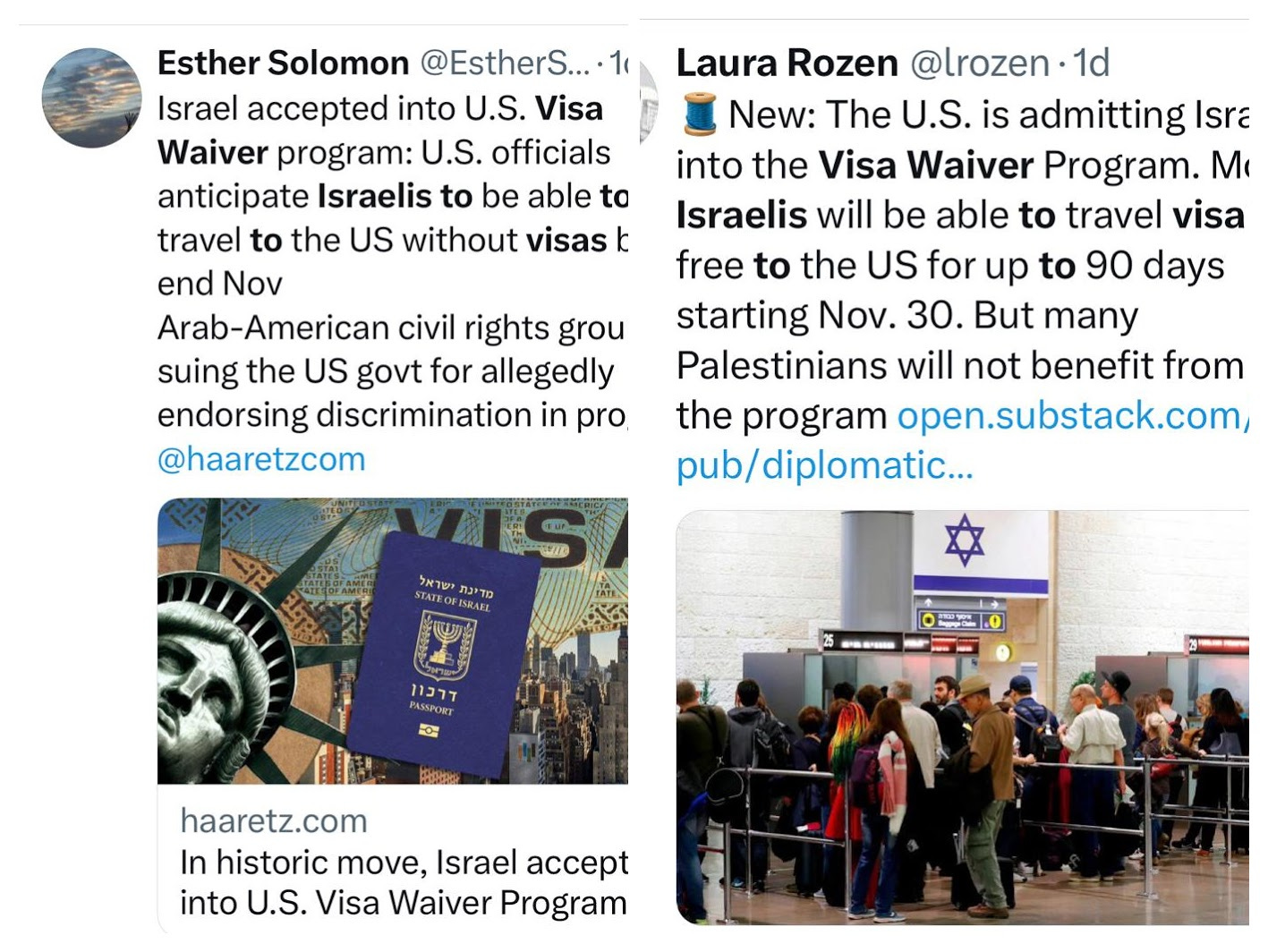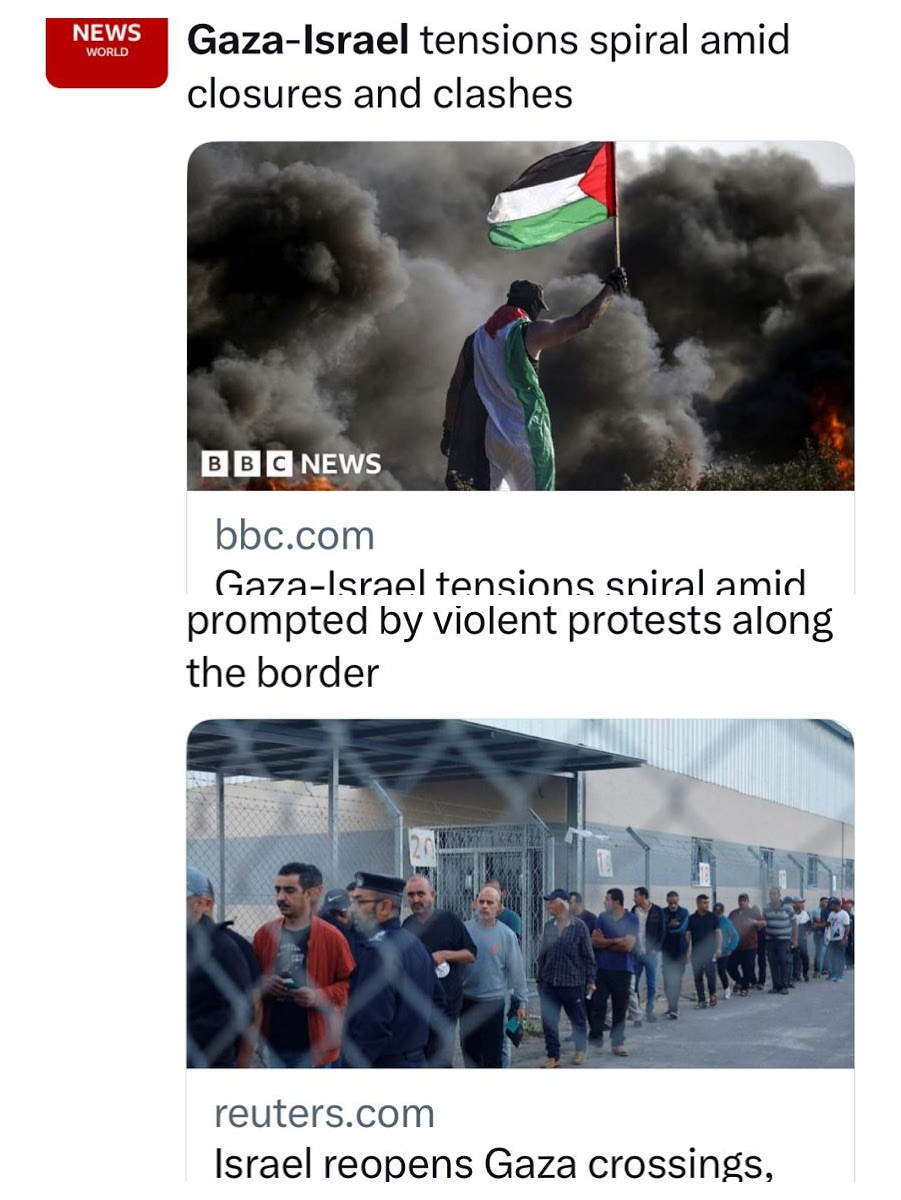1. Tense Clashes Between Extremist Observant and Secular Jews on the Holiest Jewish Holiday
A new chapter in Israel’s already polarized society, this time between extreme religious Jews and liberal secular Jews. The extremists wanted to hold public prayer sessions on the most important Jewish holiday in the calendar, Yom Kippur. They are led by mainly supremacist, right wing religious Jews who try to impose Messianic Judaism on other Jews, and secular-liberal Jews. Yom Kippur is a solemn day of fasting, during which religious Jews conduct a ritual of introspection. The groups wanted to hold public prayer events all over the country, but mainly in Tel Aviv, in a central location, Dizengoff Square. They also wanted to hold these events with gender separation between men and women. The Tel Aviv municipality granted a permit to Rosh Yehudi (Jewish Mind/Head) to hold the event on condition there would be no gender segregation in line with liberal Jews, who oppose gender based separation, due to the fact that it is humiliating for women, and rarely provides equal access with equal facilities. Rosh Yehudi then appealed to lower counts who rejected their appeal and finally appealed to the Supreme Court. The court ruled against the appeal by the extremists to enable a separation barrier and the separation was banned. The extremists decided to ignore the ruling by setting up a symbolic separation fence of chairs and Israeli flags. It is important to state that those extremists not only promote Jewish supremacy, but they are also racist regarding Arabs. The extremists want a Halachic state where religious, Torah based law, is the law of the land. They are extreme homophobes and anti the LGBTQ community. Secular activists responded by forcefully removing the makeshift gender separation barrier.
The liberal camp in Tel Aviv and in other places in the country rejected these attempts at religious coercion in the public sphere, which caused a number of clashes between the competing groups, during the solemn holiday. This is unprecedented and marks another turning point in the ongoing battle to determine the Jewish character of Israel.
It is also important to mention here that on Yom Kippur the whole country is shut down completely. There is no public transportation, the airport is closed, no radio or television programs are broadcast, people don’t drive their cars, all shops and other public and private businesses and services are shut down.
When the fast was over after sundown on Monday night, the political scene started to condemn the liberal camp, including PM Netanyahu who claimed that the left violently attacked fellow Jews on the holiest day of the Jewish year.
As a response, the minister of national security, Itamar Ben Gvir, who is also the head of the Jewish Power party, announced that he would hold a public preyer event in the main square in Tel Aviv with gender separation. But eventually he decided to cancel such a provocative, divisive event.
2. Israel And Saudi Arabia Are Getting Closer to Finalizing a Diplomatic Agreement:
A serious break though towards establishing diplomatic relations between the two countries. This is part of an extensive deal between the USA and Saudi Arabia, strongly promoted by the Biden administration. President Biden is eager to close the deal, since he needs to demonstrate an international diplomatic achievement towards his presidential campaign. The Saudis have some demands, mainly security oriented. They want F-35 military jets, and they want to enrich uranium for energy. Israel is part of the deal, and has to agree for the Saudis to gain military superiority in the region, which may influence the ability of Israel to defend itself. On the other hand, a diplomatic agreement between Israel and Saudi Arabia, will open huge new markets and relationships for Israel in the Middle East.
Saudi Arabia may condition the deal on Israel making some positive steps towards a peace agreement with the Palestinians. If that happens it may put PM Netanyahu’s coalition in jeopardy, as the extreme-right partner parties, Jewish Power led by Itamar Ben Gvir and Religious Zionism, led by Betsalel Smotrich, oppose any concessions to the Palestinians.
Meanwhile in a first official visit, an Israeli official travelled to Saudi Arabia, to participate in an international tourism conference. This was Israels minister of tourism.
3. Israel Enters the US Visa Waiver Program After a Decade of Negotiations, Deliberations and Preparations
Secretary of Homeland Security Alejandro N. Mayorkas and Secretary of State Anthony Blinken issued a joint press release earlier, announcing that Israel will enter the Visa Waiver Program (VWP) by the end of November this year. As a result, Israeli citizens will be exempt from applying for an entry visa to the US and will be able to access and be granted entry for tourism or business purposes through the existing Electronic System for Travel Authorization (ESTA) system. Israel will join what is regarded as an exclusive club of forty other nations currently in the VWP.
Secretary of Homeland Security Alejandro N. Mayorkas said in the formal announcement that “the designation of Israel into the Visa Waiver Program is an important recognition of our shared security interests and the close cooperation between our two countries.”
Secretary of State Anthony Blinken announced: “Israel’s entry into the Visa Waiver Program represents a critical step forward in our strategic partnership with Israel that will further strengthen long-standing people-to-people engagement, economic cooperation, and security coordination between our two countries,” Blinken also stated that Israel’s entry to the VWP “will enhance freedom of movement for U.S. citizens, including those living in the Palestinian Territories or traveling to and from them.”
Prime Minister Benjamin Netanyahu noted that Israel's inclusion in the visa waiver program is furthet evidence of the strong ties between Israel and the US. Foreign minister Eli Cohen welcomed the announcement by the US Department of State and noted that "this is a historic day for citizens of the State of Israel".
4. Erez Checkpoint at Gaza Border Briefly Reopened and then Closed Amodst continued Tensions
The Government’s Coordinator in the Territories announced on Thursday that the border will open to allow Gazan day laborers into Israel. The Gaza-Israel border checkpoint was closed on the eve of the Jewish holiday of Rosh Hashana and remained closed due to violent riots near the border fence, in the cities of Gaza and Khan Yunis. Rioters threw explosive devices and flew incendiary balloons that caused local fires in the area.
According to the media, regional mediators attempted to reduce the tensions between Israel and Hamas, and delivered the message that if Hamas can control the violence, Israel will reopen the border checkpoint.
Senior Israeli security officials’ assessment is that it would be possible to reach agreements with Hamas and avoid an overall escalation in security tensions, with the help of regional mediators, especially Egypt. However, those same officials also said that if the situation in the Gaza border does not improve, this may lead to yet another round of armed fighting, like the several armed clashes between Israel and Hamas in recent years. However, these sources assess that Hamas is not interested in further escalation but aims to increase the number of permits for Gazan workers to cross into and work in Israel. Should this happen, Hamas can claim it as its own achievement.
However, given continued tensions and the Jewish high holiday of Sukkot, the IDF declared a closure on Gaza and the West Bank and all checkpoints, on the Gaza border and in the West Bank, will close until after the holiday.
5. Five Family Members Killed in Shooting in Bedouin Village in Northern Israel
Five people from one extended family/clan were shot dead from close range in the Bedouin village of Basmat-Tivon in the north of Israel. The victims are two brothers, ages 14 and 17, a mother and her son and another male relative. According to survivor testimonies, three masked shooters entered the yard and then the house carrying firearms and shot the victims again after they were fatally wounded. Also on Wednesday, a sixth victim, a fifty year old resident of Haifa was gunned down in a separate incident, and killed on the street in broad daylight.
The number of victims of firearm violence in the Arab community has reached a record high number of 190 since the beginning of 2023. Communal leaders, politicians and analysts criticized the ministry of internal security and the police for failing to address surging violence and confiscate firearms from crime families and gangs. A joint Arab-Jewish vigil was held in the village of Basmat-Tivon several hours after the shootings, while many village residents remained indoors for fear of further violence.









